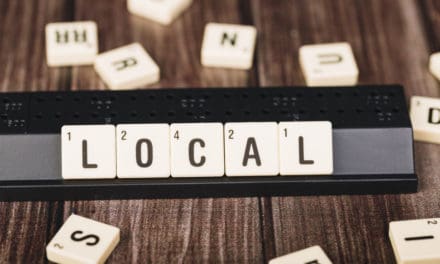Everyone needs a prepared elevator speech. That’s the six second conversation you have when you unexpectedly share the elevator with someone you want to impress. Remember to include these three key elements of anyone’s memorable elevator speech:
Describe yourself as the solution to a problem.
The most important part of an elevator speech is the first sentence. It’s important because when you don’t have much time, this sentence becomes the ‘arresting headline’ of your brief story. Even when you do have more than a few moments for your elevator speech, the first sentence is vital because it will determine whether the person you’re talking to will continue listening ̶ or tune out.
Use your first sentence to describe yourself as ‘the solution person’ who fixes problems faced by your company, your clients, patients, passengers or customers. People don’t care about your job title or how your industry describes the work you do. They only care about how you can help them solve a problem they have. (Little secret: everyone has problems that need solving.)
Rather than calling myself a presentation-skills-trainer or a public-speaking-coach, which can leave listeners wondering about how I can help them, I tell new people I meet, “I unlock the full potential of people by giving them confidence to be speakers.” Notice the use of clear, simple words that avoids jargon and overused buzzwords.
Tell an anecdote story
After you describe how you solve problems for the people you work with, tell a very short story to explain your motivation for doing what you do. This anecdote should be your ‘signature story’ – one that reveals the Ah-Ha Moment when you realised you could do what you do. Or an example that shows how good you are at your profession or craft.
For me, I always tell the story of how and when I realised the need for strong speaking skills. “As a college student, I opted to participate in a debate tournament rather than sit through a semester-long course in public speaking to fulfill a requirement of my studies. “During my first debate I realised why I needed to be as articulate and confident as my opponents to excel academically and professionally. My team was roundly beaten! That was the moment I dedicated myself to becoming a better speaker and empowering others with their own communication skills.”
The value of telling an anecdote is that people love listening to stories (just think of kids at bedtime). Stories are more memorable than highlights from your resumé. People at networking events don’t always remember my name, but they can tell you I was clobbered in my first college debate. Stories also build rapport with your listeners. (Because we get a better sense of someone we’ve just met when they open up and share a personal story).
Remember to make your anecdote brief – your entire elevator speech is just a few seconds long. It should have a few specific details, such as the name of the school my debating opponents represented, because that detail makes the story more interesting and colourful. And it should include vivid language that makes your listener’s ears perk up. I use words like “I suffered a humiliating defeat” which sticks in the mind. When I talk about my training course I use positive words like ‘excel’, ‘upskill’ and ‘empower’.
Ask an open-ended question
Lastly, end by asking a question that can’t be answered with a simple “yes” or “no.” The aim of an elevator speech is to start a dialogue. After all, you can’t learn about someone you’ve just met when your lips are moving. You have to let your ears do the discovery work.
The question you ask can be as simple as, “And what do you do?” Or you can make it specific to your field of work. I’ll often ask a question along the lines of, “What experience have you had with public speaking?” Or, “What kind of speaking do you do in the course of your work?”
A memorable elevator speech should be brief, it should position you as the solution person for some problem, eg: “I was brought in to solve the problem in dispatch department.” To which the normal top executive response is “Ohhh, what problem was that?”*
You should share a personal anecdote that explains why you do what you do. You should transform your elevator speech from a monologue to a dialogue.
*Now you’ve got a dialogue going. Tip: Go beyond your floor if you need to. Keep the conversation going.
Abridged from article by Christine Clapp. Reproduced for educational purposes.
If you are interested in expanding your capabilities and setting up your freelancing business, NZIBS has a range of courses that may be suitable.
Learn how to earn an income working from home
Train for a new job at home, and in your own time. The Institute has been giving adults a second opportunity at a new career since 1991, by teaching people the skills to grow personally and become financially self-reliant. Discover your options. Make choices.










